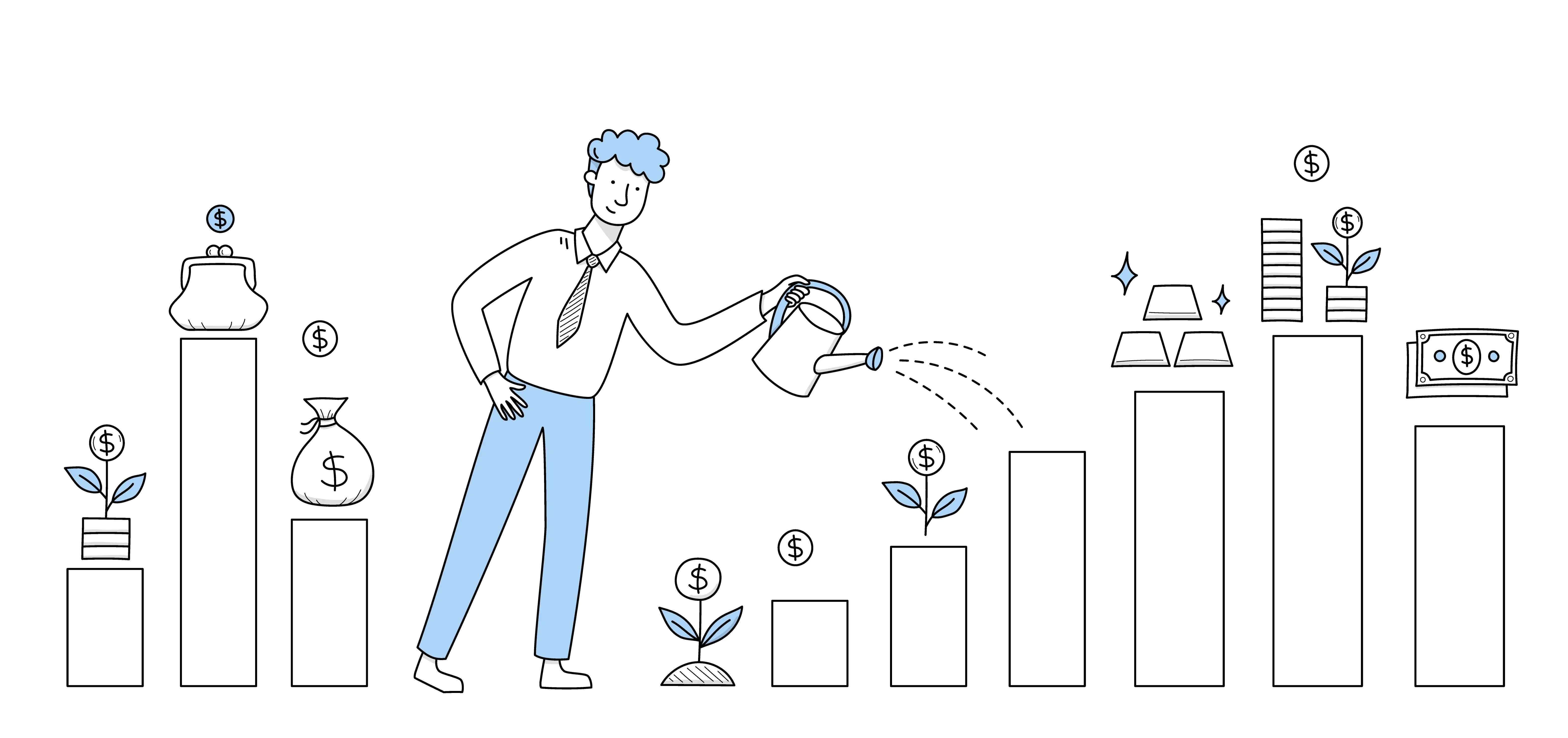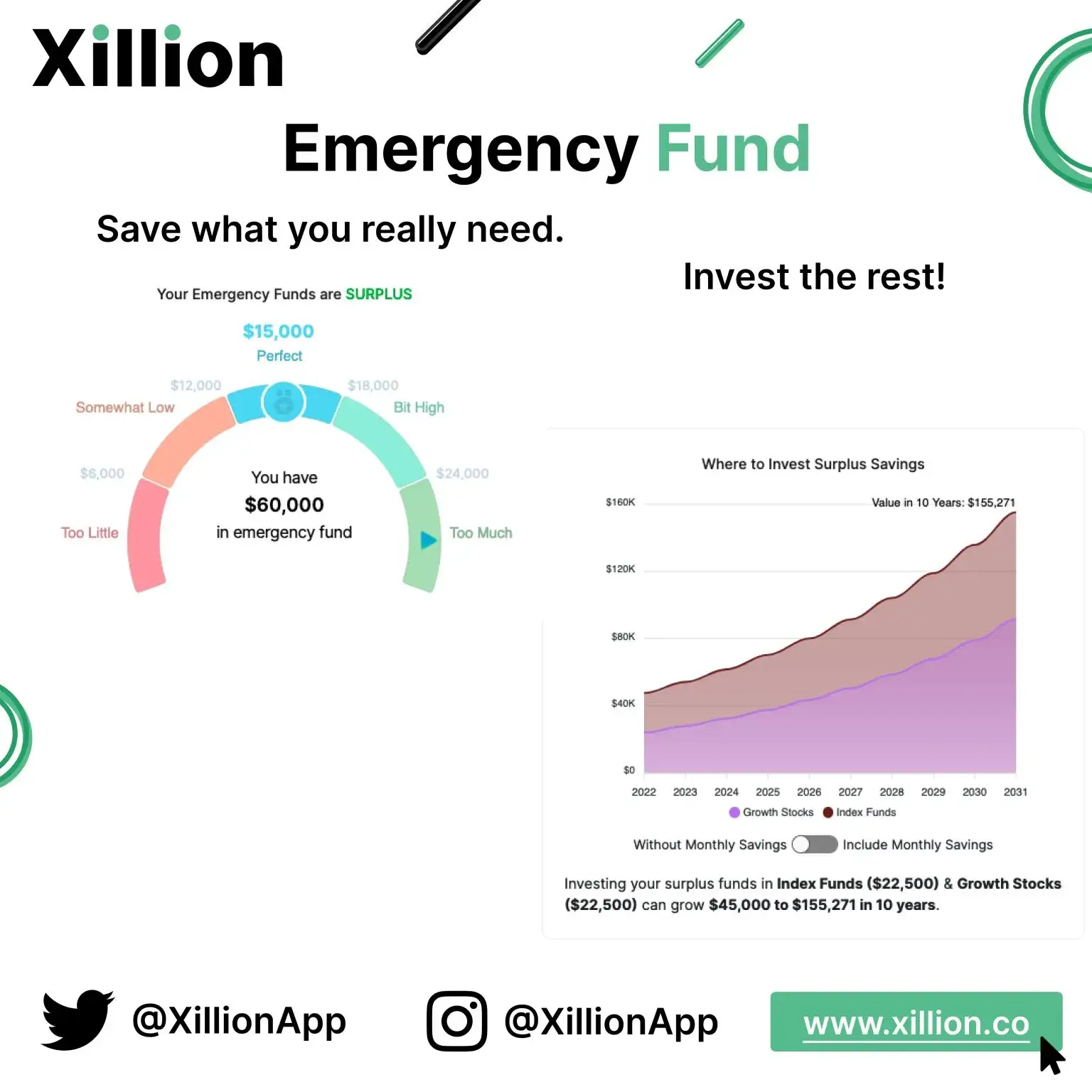Are you holding too much cash in your emergency fund?
Co-Authored and Reviewed by Gagan Sandhu, MBA - The University of Chicago Booth School of Business, CEO of Xillion
Posted on . 2 min read

While having an adequate emergency fund is crucial to your financial health, holding too much cash holds you back from achieving long-term financial goals.
OPPORTUNITY COST
Opportunity cost refers to the cost of an alternative that you give up to pursue a certain action. In other words, when you make a financial decision, you're giving up the opportunity to do something else with that money.
EXCESSIVE EMERGENCY FUND
Now let's apply the concept of opportunity cost to your emergency fund. Imagine you have $90,000 saved in your emergency fund, but your monthly expenses are only $5,000. That means you have almost 18 months' worth of expenses saved up.
While that may seem like a good thing, the extra money in your low-interest savings account could be invested elsewhere with a higher expected return. Hence, the opportunity cost.
INFLATION
One factor to consider is inflation. Inflation decreases the purchasing power of your money over time. So your emergency fund isn't keeping up with inflation, you're actually losing money over time in terms of purchasing power.
GROWING YOUR MONEY
Another factor to consider is the growth of your money from the overall economic growth. If you're holding onto too much cash, you're not investing in the stock market or other investment opportunities that could grow your wealth.
XILLION EMERGENCY FUND CALCULATOR
So, how much should you actually keep in your emergency fund? This is where the Xillion Emergency Fund Calculator comes in.
By taking into consideration factors such as expenses, savings, income, job security, severance & COBRA package, spouse employment, inflation, and economic growth, the calculator can help you determine the right amount for your family's emergency needs.

